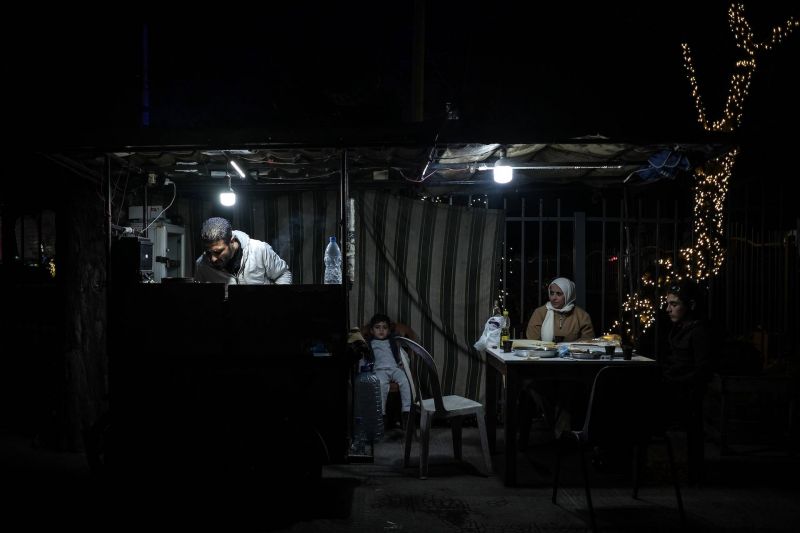
Street vendors sell food in Tripoli, March 29, 2024. (Credit: João Sousa/L'Orient Today/File photo)
BEIRUT – Lebanon’s Purchasing Managers Index (PMI), which measures the direction of economic trends and manufacturing in the private sector, recorded a four-month low of 48.8 in April, down from 49.4 in March (-1%).
Published by BlomInvest, the PMI is calculated as the weighted average of five components including new orders, output, employment, suppliers’ delivery times and stocks of purchases.
Values above 50 reflect improvements in business conditions while values below 50 signal deterioration of business activities.
April’s index shows the morale of the Lebanese private sector seems to be on the decline, and indicates its fast “deterioration” since December last year, the report stated, moving further away from the equilibrium point (which is set at 50).
Escalating geopolitical tensions
According to the report, published on Wednesday the drop was mainly driven by weaker demand and a subsequent decline in business activity, resulting from increasing geopolitical tensions as Israel continues its war on Gaza — a war that has spilled over in southern Lebanon.
Lower sales volumes have been observed across Lebanon’s private sector, with sales to non-domestic clients having particularly taken a hit and dropping at the steepest rate for nearly a year and a half.
Geopolitical uncertainties and security concerns in the region have caused hikes in shipping costs to Europe following disruptions in the Red Sea, and all these factors combined were found to be the main reasons behind the decrease in sales to non-domestic clients and the drop in export orders (the steepest since December 2022).
Despite weaker sales, employment levels remained mostly unchanged compared to the previous month and companies have expanded their stocks and purchasing activity by “the greatest extent seen in nine months,” stated the report.
The cross-border fighting between Hezbollah and Israel was estimated to have already cost Lebanon at least $1.35 billion in losses by the end of March, or an average of $6 million a day since the war began.